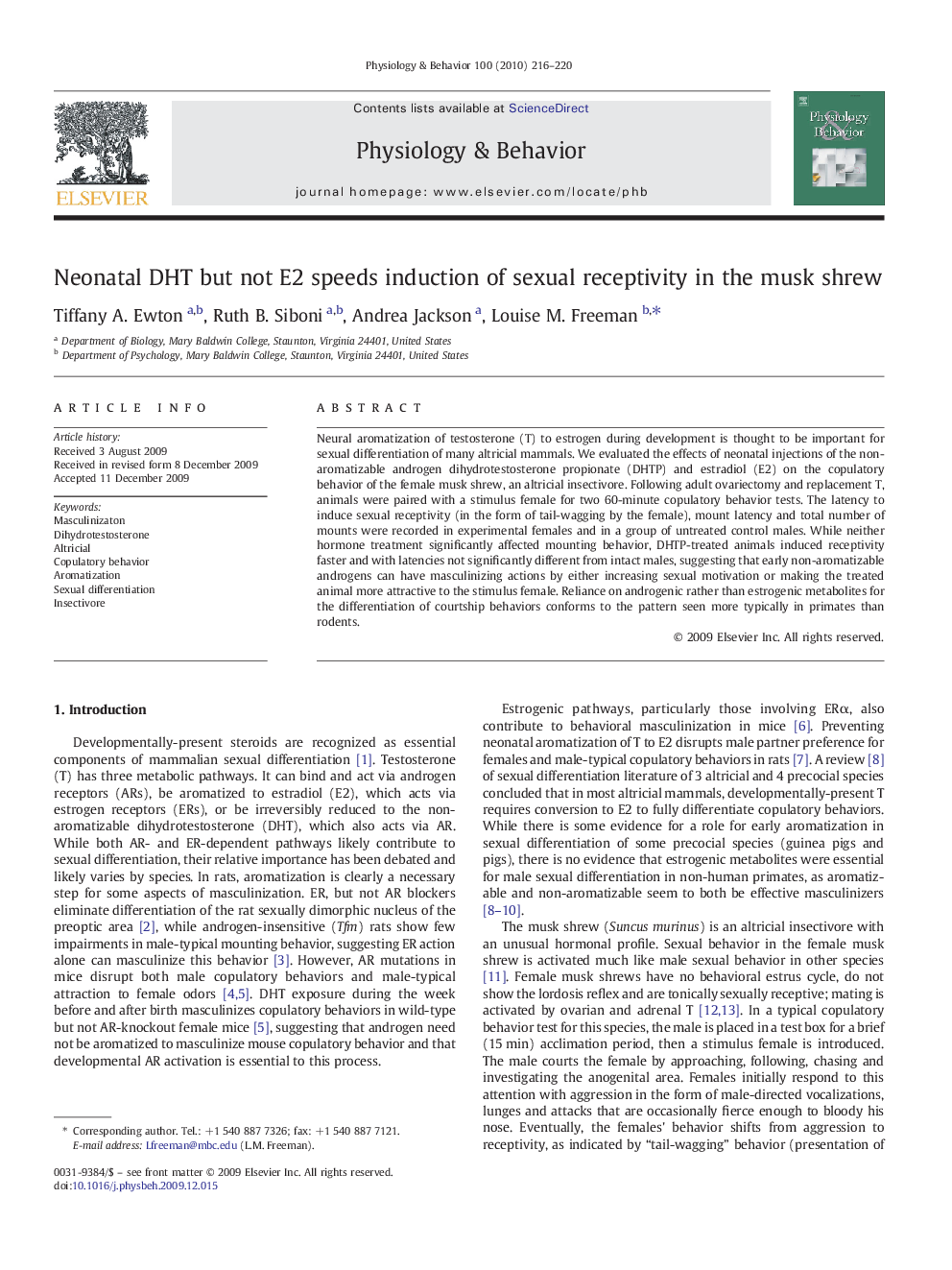| Article ID | Journal | Published Year | Pages | File Type |
|---|---|---|---|---|
| 2845058 | Physiology & Behavior | 2010 | 5 Pages |
Neural aromatization of testosterone (T) to estrogen during development is thought to be important for sexual differentiation of many altricial mammals. We evaluated the effects of neonatal injections of the non-aromatizable androgen dihydrotestosterone propionate (DHTP) and estradiol (E2) on the copulatory behavior of the female musk shrew, an altricial insectivore. Following adult ovariectomy and replacement T, animals were paired with a stimulus female for two 60-minute copulatory behavior tests. The latency to induce sexual receptivity (in the form of tail-wagging by the female), mount latency and total number of mounts were recorded in experimental females and in a group of untreated control males. While neither hormone treatment significantly affected mounting behavior, DHTP-treated animals induced receptivity faster and with latencies not significantly different from intact males, suggesting that early non-aromatizable androgens can have masculinizing actions by either increasing sexual motivation or making the treated animal more attractive to the stimulus female. Reliance on androgenic rather than estrogenic metabolites for the differentiation of courtship behaviors conforms to the pattern seen more typically in primates than rodents.
